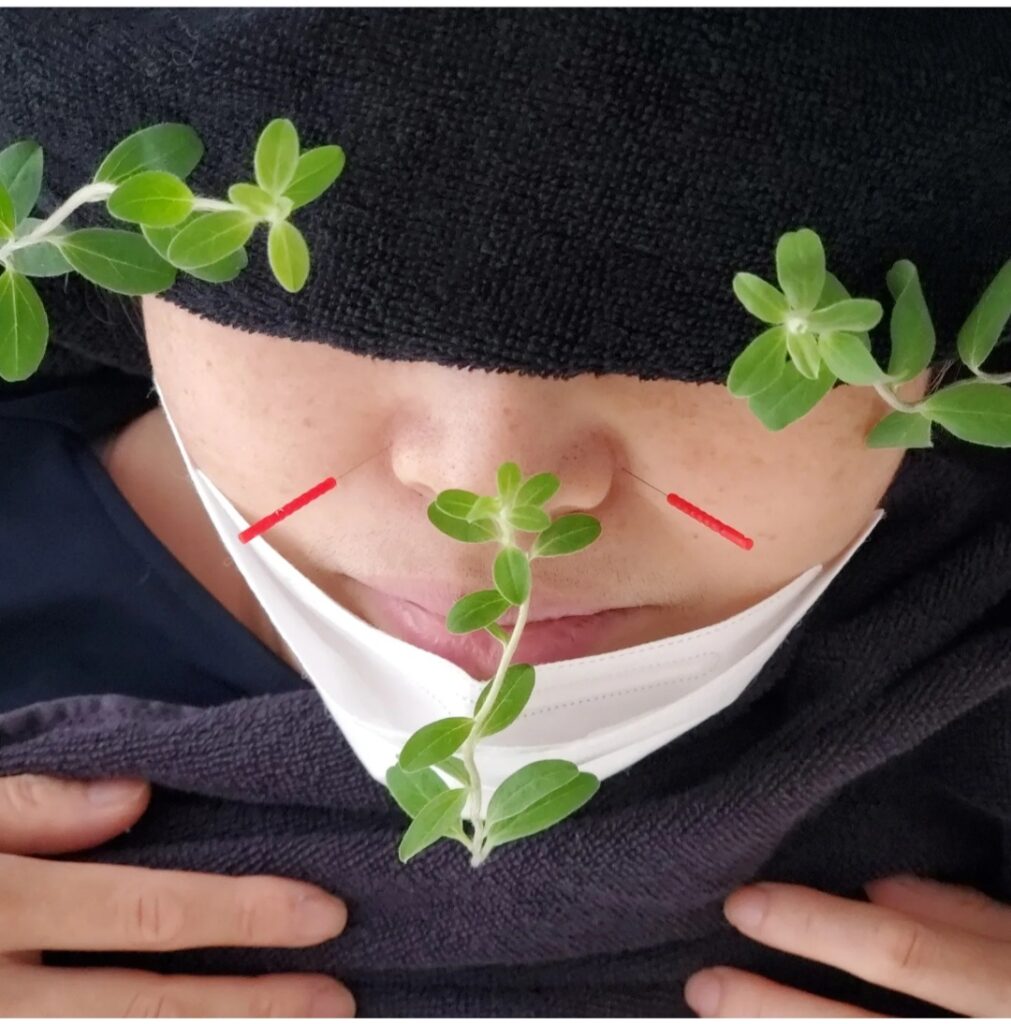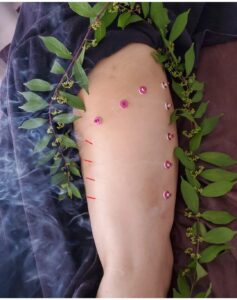嗅覚障害 コロナ感染後
Olfactory disorders After corona infection
迎香は鼻水・鼻づまりのツボとして使われていますが、香りを迎えるという経穴名・ツボの名前の通り、臭いがわからない、臭覚異常、嗅覚障害にも使います。迎香というツボは手の陽明大腸経という、大腸や排泄に関わる経絡に属しています。大腸は、排せつ行為を担うので、出るものはきちんと出す、通り抜けをよくするといった作用が強い経絡になります。東洋医学では、五行と臓腑の表裏関係では、大腸の表裏は肺となり、大腸と一番関係が深いとされている臓器は肺になります。人間は肺胞を通して、酸素二酸化炭素の交換を行いますが、大腸による便の排泄も、必要なものはからだに取り込み、不要なものは出すという共通点があります。肺が健康で、肺の働きに問題がなければ、鼻水、鼻づまりも起こりにくいです。鼻水、鼻づまり、嗅覚障害など、何らかの鼻に関するトラブルがある場合は、肺も弱っていることが多いです。コロナ感染後に、嗅覚障害を引き起こしている方も多くいらっいますが、鍼灸治療も、嗅覚障害における治療の選択のひとつだと思います。
Yingxiang is used as an acupuncture point for a runny or stuffy nose, but as the name of the acupuncture point and the name of the acupuncture point, "welcoming the fragrance," it is also used for odor blindness, abnormal sense of smell, and olfactory disorders. The acupuncture point called Yingxiang belongs to the Yangming large intestine meridian of the hand, which is related to the large intestine and excretion. Since the large intestine is responsible for the act of elimination, it is a meridian that has a strong effect on the proper passage of what comes out and the passage of what goes in. In Oriental medicine, according to the five elements and their inverse relationship to the internal organs, the large intestine's inverse is the lungs, and the organ most closely related to the large intestine is the lungs. The human body exchanges oxygen and carbon dioxide through the alveoli, and the excretion of feces by the large intestine also has something in common: the body takes in what it needs and releases what it does not need. If the lungs are healthy and there are no problems with lung function, runny nose and nasal congestion are unlikely to occur. If there is some kind of nasal problem, such as runny nose, nasal congestion, or olfactory disturbances, the lungs are often weakened as well. Acupuncture is one of the treatment options for olfactory disturbances after coronary infection.

masui1006
#嗅覚障害 #嗅覚 #後遺症 #lossofsmell
#afereffects #olfactory #nosmell #nosmells #otolaryngology #otolaryngologist #ent #acupuncture #health
#healthcare #athlete #ヘルスケア


